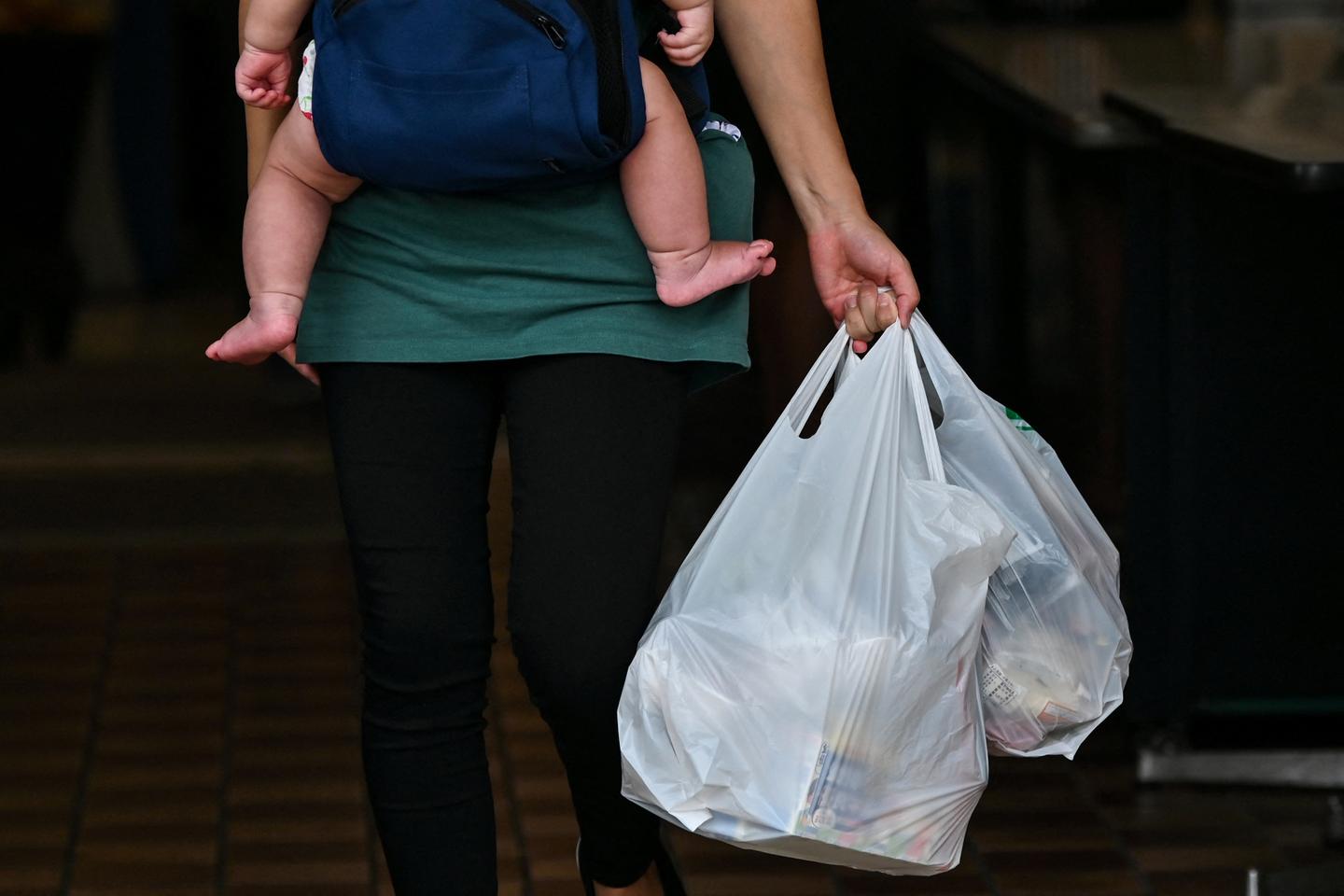


Once considered a model for environmental protection and the fight against climate change, Sweden continues to regress. As its greenhouse gas emissions keep rising (+7% and +5.6% in the first and second quarters), the Scandinavian kingdom has decided to abolish, starting November 1, the tax on plastic bags purchased at the checkout, raising concerns about a resurgence in their use.
At 3 kronor (around €0.26), this tax – bringing the price of plastic bags to around 7 kronor – had been introduced in May 2020, at the request of the Liberal Party, which made it a condition for supporting the government formed by the Social Democrats and the Greens. In turn, the far-right Sweden Democrats have been demanding its abolition since their alliance with the conservative Liberal government, which took office in October 2022.
Yet the scheme has proved effective. Purchases of plastic bags dropped from an average of 74 per person in Sweden in 2019 to 17 in 2023, well below the European target of a maximum of 40 bags per person by 2025. According to the Swedish Environmental Protection Agency, the tax's introduction was "a decisive factor" in the 75% reduction in bag usage between 2020 and 2021, a continued decline.
In most supermarkets, the very thin bags reserved for fruit and vegetables have also disappeared, replaced by paper bags. In 2023, Swedes used just six paper bags per person.
To justify the tax's repeal, announced in September 2023, the government highlights Sweden's strong results relative to the European target, arguing that the scheme is now superfluous. It claims the tax could even "have negative effects," such as "administrative costs," and "increased consumption of alternative solutions."
'Ideological' victory
In an op-ed, published on November 1 in the tabloid Aftonbladet, Oscar Sjöstedt, a spokesman for the Sweden Democrats, celebrated an "ideological" victory. He sees the tax as a "symptom of a contemptuous mentality," which "makes Swedes' everyday lives more difficult," to "appease a political elite that often doesn't suffer itself from the policies it imposes on other people."
The scrapping of the tax – which brought in around 500 million kronor for the state – had an immediate effect. From November 1, most supermarket chains reduced the price of plastic bags at the checkout by three kronor. Some chains are resisting: Apotek Hjärtat, number one in the pharmacy sector, with 400 outlets in Sweden, has announced that it will donate an equivalent amount to the NGO WWF.
You have 18.72% of this article left to read. The rest is for subscribers only.
